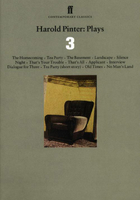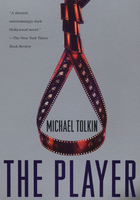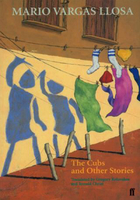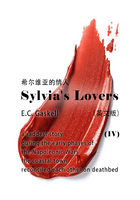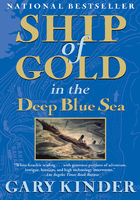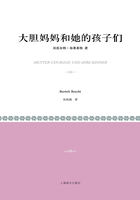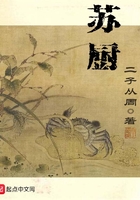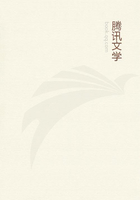Poets once were the constellations of their age, shining brightly, untouched, above the common mass of people, showing us all the path to our better natures and ambitions. Poetry was once the universal baptism for all great events: births and deaths, weddings and funerals, public speeches, gatherings, and dedications. The words of the poets rang forth and generations still read and listen. Why? The great eighteenth-century Romantic poet William Wordsworth said a poet was someone who said ordinary things in an extraordinary way. Irish poet Seamus Heaney said at the end of the twentieth century that poetry is not only "a matter of proffered argument and edifying content but…a matter of angelic potential, a motion of the soul."[1] Perhaps this is the allure of poetry: it offers everyone an inspirational way to perceive the world.
In fact, poetry and history have a long, intimate connection. Much of what we know about ancient history throughout the world came to us through the centuries and millennia as epic poetry purporting to tell the stories of great men and events. Some of the best-known examples include Homer's Iliad and Odyssey, Virgil's Aeneid, Ovid's Metamorphoses, the Portuguese Lusiads, the German Nibelungenlied, the Spanish El Cantar de mio Cid, Beowulf, and the Irish legend of Cu Chulainn. Aristotle, in his Poetics, said a historian and a poet do not differ from each other because one writes in verse and the other in prose-"But they differ in this, that the one speaks of things which have happened, and the other of such as might have happened. Hence, poetry is more philosophic, and more deserving of attention, than history." While many would disagree that poetry is more deserving of attention than history, it is easy to see that history and poetry create a fascinating juxtaposition when viewing each through the lens of the other. To consider the life of a historical person through poetry-as in the present book-is to both see that person for who they were, and to consider who that person could have, or even should have, been in a more poetically perfect world.
Poets, as such, are often the harbingers of apotheosis. They recognize and celebrate greatness often before such greatness is realized by the larger population. As Ralph Waldo Emerson declared, "The sign and credentials of the poet are, that he announces that which no man foretold.…He is a beholder of ideas, and an utterer of the necessary and casual."[2] Some of the great poems in world history are elegy, such as John Milton's "Lycidas," Percy Shelley's "Adonais," and Alfred Tennyson's "The Lady of Shalott." One of Abraham Lincoln's favorite poems was Thomas Gray's "Elegy Written in a Country Churchyard." America's greatest elegy-some might argue its greatest poem-is Walt Whitman's "When Lilacs Last in the Dooryard Bloom'd," a somber tribute to Abraham Lincoln in the wake of the president's assassination.
Lincoln and poetry, in fact, have a long and intimate connection. As a young man, Lincoln wrote and even published multiple poems, and all of his greatest writings and speeches-especially the Gettysburg Address and Second Inaugural-are themselves outstandingly and inherently poetic. The poetry that Lincoln read and loved throughout his life, and its influence on him, forms a major part of every biographical study of him. There was even a 2008 book, Lincoln: The Biography of a Writer, which examined Lincoln from this literary angle.[3]
Immediately after Lincoln's death, hundreds of poetic tributes to the martyred president were published in newspapers across the country. A number of these poems were collected and published that same year as Poetical Tributes to the Memory of Abraham Lincoln. Since then, the art of portraying or praising Lincoln in verse has never abated. Multiple book collections of poetry about Lincoln have been published, such as The Praise of Lincoln: An Anthology (1911), The Poets' Lincoln: Tributes in Verse to the Martyred President (1915), The Book of Lincoln (1919), and Lincoln and the Poets (1965).
Some of the greatest poems about Lincoln have been written by America's greatest poets: Herman Melville, William Cullen Bryant, John Greenleaf Whittier, James Russell Lowell, Stephen Vincent Benét, and, of course, Walt Whitman. Lincoln has been the literary muse for countless writers and poets of all skill levels, and continues to be so to this day.
But what about his wife, Mary?
Some might argue that Mary Lincoln is insufficient as muse or even as historical subject. And while she did not alter the course of American history as did her husband, she certainly contributed to his achievements. Mary Lincoln deserves attention not only as Abraham's wife, but also and especially as an astonishing woman and person in her own right. Mary Lincoln, similar to her husband, also has a long and intimate connection to poetry. In fact, this shared connection was one of the mutual interests that drew Mary and Abraham together as a couple when they first met.
As a young girl, Mary Todd, the daughter of a wealthy and influential banker and politician in Lexington, Kentucky, showed a predilection and passion for poetry. She had twelve years of formal schooling-more than nearly all women at the time, as well as most men-and was well read in classic literature. She found great pleasure and solace in verse. Her cousin remembered that as a young girl, Mary's "love for poetry, which she was forever reciting, was the cause of many a jest among her friends. Page after page of classic poetry she could recite and liked nothing better."[4] The bookshelves of the Todd home where Mary grew up were well stocked with volumes of poetry by Robert Burns, Lord Byron, William Shakespeare, Alexander Pope, and other classics.[5]
Mary and Abraham often would read, recite, and discuss poetry together, both during their courtship and after their marriage. Mary was an earnest and voracious reader, and liked to "review" many of the volumes for her husband. "I heard him say he had no need to read a book after Mary gave him a synopsis," recalled Mary's younger sister Emilie Todd Helm.[6] Some of the known books of poetry owned by the Lincolns in Springfield included the works of Robert Burns, Eliza Cook, Oliver Goldsmith, Fitz-Greene Halleck, A. C. Reed, and William Shakespeare, as well as an anthology of female American poets edited by T. B. Read and a collection of "elegant extracts" of poetry compiled by Rev. Vicesimus Knox. Mary Lincoln also was a subscriber to the Southern Literary Messenger, a literary periodical.[7]
Mary, like her husband, loved the poems of William Shakespeare and Robert Burns, and instilled her love of poetry in her children, often reading to them from her favorite poets.[8] Her sister Emilie remembered Mary reading Walter Scott's poetry to her eleven-year-old son, Robert, who imbibed it so well that one day Mary and Emilie heard "sounds of strife" outside the Lincoln home and ran to the window to investigate. They saw Robert and a friend "having a battle royal," enacting scenes of Scott's poem, "The Lady of the Lake," Emilie recalled. "Bob, with his sturdy little legs wide apart, was wielding a fence paling in lieu of a lance and proclaiming in a loud voice, 'This rock shall fly from its firm base as soon as I.' Mary, bubbling with laughter, called out, 'Grammercy, brave knights. Pray be more merciful than you are brawny.'"[9]
William Herndon, Abraham Lincoln's law partner, recalled that it was Mary's custom during a party "to dress up and trot out" her children "and get them to monkey around, talk, dance, speak, quote poetry, etc."[10] While to Herndon such antics were ridiculous, to Mary, raising children who were well dressed, intelligent, and literary was a mark of culture. Mary's teachings influenced oldest son Robert, who enjoyed reading poetry his entire life.[11] But it was middle son Willie who seems to have inherited his parents' facility with words. He even published an original poem in the Washington National Republican newspaper in 1861, when he was only ten years old, after the death of his father's close friend, Col. Edward D. Baker.[12]
In 1860, an Eastern friend of the Lincolns' oldest son Robert visited the Lincolns in Springfield and was delighted to find that Mary Lincoln was "a lover of poetry." He gave her a copy of a book of poems by his friend Albert Laighton, selections of which she asked him to read aloud to her. She then brought the book with her to Washington in 1861.[13]
As first lady, Mary was allowed a $250 government appropriation to purchase books for the White House library. Being a lover of literature she reveled in the opportunity. In July and August of 1862, Mary spent the money on dozens of books, including volumes of poetry by Thomas Hood, Oliver Goldsmith, Elizabeth Barrett Browning, Lydia Huntley Sigourney, Frances Sargent Osgood, Edmund Spenser, and William Shakespeare.[14]
Mary kept her literary penchant vibrant by meeting and discussing literature and poetry with Massachusetts senator Charles Sumner, a true aristocrat and intellectual, and also a friend of Whittier, Longfellow, Emerson, and other New England writers. Mary herself befriended famous poets, such as N. P. Willis, editor of the Home Journal magazine, who formed part of her White House coterie. Willis was a vain man, according to Mary's cousin Elizabeth Grimsley, and one day he suddenly asked Mrs. Lincoln "You do not approve of me, you think me a very wicked man, say, truly, do you not?" Mrs. Lincoln asked in return "how could that be with one who wrote such exquisite sacred poems, that have been made ours, even through our school readers, where we and our children have learned to love them?"[15] As historian Ruth Painter Randall quipped, "Poetry was always an open sesame to Mary."[16]
The following collection contains poetry written by, for, and about Mary Lincoln. It is arranged chronologically by poem rather than by topic to avoid creating a muddled amalgamation of poetic styles from different centuries that would undoubtedly leave an erratic and uneasy impression on the reader. The collection begins with a rhymed and metered poem written in 1839 about an incident involving a young Mary Todd, and ends with a modern series of poems written in 2012 that give voice to Mary's infamous shopping, belief in spiritualism, and arrest on charges of insanity.
The chronological order not only arranges the poetic style of the works, but also offers a view of the changing perceptions of Mary Lincoln through the years. The first four poems show Mary as a living person contending with everyday issues. The four poems honoring Mary immediately after her husband's murder offer a glimpse of the public sympathy for the bereaved widow. The twentieth-and twenty-first-century poems show Mary as she is popularly seen today: as insane woman, as complex person, and as an intricate and indispensable part of her husband, Abraham Lincoln.
Interestingly, poetry written about Mary both during her life and in death has been sympathetic, seeking to understand and commiserate with a woman who reached a pinnacle of personal and political achievement only to be surrounded and overwhelmed by personal tragedy. This is surprising considering that Mary Lincoln is the most controversial first lady in American history, and her reputation has often been more negative than positive. Her biography shows that her gracious and generous nature, her keen intelligence, her love and support of her husband, all were-and remain-overshadowed by her quick temper, her jealousy and paranoia, and her illicit behaviors as first lady.[17]
It is believed by many historians-yet disputed by others-that Mary suffered some form of mental and/or emotional illness, most likely bipolar disorder, which ultimately led her son Robert to commit her to an insane asylum in 1875.[18] This remains Mary's most conspicuous legacy, and a number of the poems about her focus on this aspect of her life. Yet there is more to the verses about her printed here, as there was more to Mary herself, than that one lamentable moment. There are verses concerning her relationship with her husband, such as their physical passion and emotional love for each other. There are sympathetic paeans to Mary as tragic widow of a murdered husband. There also are various reflections on Mary as young girl, as mother, and as first lady. Finally, there are elegies to Mary that wring out not only her own trials, but also her place in history and in her husband's great apotheosis.
So why do we, or why should we, care about Mary Lincoln or her connection to poetry? As Emerson said, "the experience of each new age requires a new confession." The study of Mary Lincoln as woman, wife, and widow currently is undergoing a renaissance. There have been at least twenty-four books (nonfiction, fiction, and juvenile) and four major stage productions on Mary Lincoln's life published since the turn of the twenty-first century, with more on the way. Her life and importance have only begun to be delved into. To experience her words, thoughts, and legacy as explained and exposed through poetry over the past one hundred seventy years advances our understanding and appreciation of this iconic individual.
Of course, there is another reason to read a book of poetry about Mary Lincoln. For enjoyment. The poet Dylan Thomas once told an admirer, "Read the poems you like reading. Don't bother whether they're 'important,' or if they'll live. What does it matter what poetry is after all? If you want a definition of poetry, say: 'poetry is what makes me laugh or cry or yawn, what makes my toenails twinkle, what makes me want to do this or that or nothing,' and let it go at that. All that matters about poetry is the enjoyment of it, however tragic it may be. All that matters is the vast undercurrent of human grief, folly, pretension, exaltation, or ignorance, however unlofty the intention of the poem."[19]
Thomas's words capture exactly the reason a collection such as this book has value. It is not only pleasant and interesting to read the verses about Mary Lincoln written over the years, but in Mary's life we find personified the full gamut of human emotion and experience.
Notes
[1] Seamus Heaney, The Redress of Poetry (New York: Farrar, Straus and Giroux, 1995), 192.
[2] Ralph Waldo Emerson, "The Poet," in Emerson, Essays (Boston: Houghton, Mifflin and Company, 1890), 15.
[3] Fred Kaplan, Lincoln: The Biography of a Writer (New York: HarperCollins, 2008).
[4] Mary Bradley Rally, "Cousin and Childhood Friend of Mary Todd Lincoln Tells of Days When She and Martyr's Wife Were Girls Together," Lexington Herald, Feb. 14, 1909, 1.
[5] Sale at Auction of Household and Kitchen Furniture of Robert S. Todd Estate, Lexington, Ky., Sept. 26, 1849, copy from Mary Todd Lincoln Home, Lexington, Ky.; William H. Townsend, Lincoln and His Wife's Home Town (Indianapolis: Bobbs-Merrill, 1929), 156-59.
[6] Katherine Helm, True Story of Mary, Wife of Lincoln (New York: Harper & Brothers, 1928), 108.
[7] Katherine B. Menz, Lincoln Home Historic Furnishings Report (Harper's Ferry, W.V.: National Park Service, 1984): Historical Data, Section D, available online at: Letters between Mary and her oldest son Robert in 1876 mention her owning volumes of poetry by John Greenleaf Whittier, Alexander Pope, Elizabeth Barrett Browning, and Edward Bulwer-Lytton. Robert Lincoln to Mary Lincoln, Chicago, Feb. 7, 1876, Robert Todd Lincoln Letterpress Books, vol. 1, reel 1, pp. 162-64, Abraham Lincoln Presidential Library, Springfield, Ill.; Mary Lincoln to Robert Lincoln, Springfield, June 19, 1876, Justin and Linda Levitt Turner, Mary Todd Lincoln: Her Life and Letters (New York: Alfred A. Knopf, 1972), 615-16.
[8] In 1869, Mary and Tad traveled throughout Scotland, during which they visited the home of Robert Burns. Mary described the visit in letters by telling of the sights they saw that Burns had immortalized in his poems. Mary Lincoln to Eliza Slataper, Frankfurt, Aug. 21, 1869, and to Rhoda White, Cronberg, Aug. 30, 1869, Turner and Turner, Mary Todd Lincoln, 512, 516.
[9] Helm, True Story of Mary, 108. An 1847 copy of Scott's book Lady of the Lake, inscribed by Mary Lincoln to her cousin Helen M. Morse-and perhaps even the very same book Mary read to Robert-is part of the Lincoln archival collection (call number PR 5308.A1 1847), at the Abraham Lincoln Library and Museum, Harrogate, Tenn. In April 1858, Robert Lincoln borrowed volume 2 of Walter Scott's Poetical Works from the Illinois State Library. Amy Louise Sutton, "Lincoln and Son Borrow Books," Illinois Libraries 48, no. 6 (June 1966): 444.
[10] William Herndon to Jesse Weik, Jan. 8, 1886, Emanuel Hertz, The Hidden Lincoln: From the Letters and Papers of William H. Herndon (New York: Viking Press, 1938), 128.
[11] Robert Lincoln's home, Hildene, still has dozens of books of poetry on its shelves. Some of the poets Robert and his family enjoyed reading include famous writers such as Burns, Whittier, Longfellow, Tennyson, Browning, Milton, and Byron, as well as lesser-known poets like Isaac Rusling Pennypacker, Felicia Hemans, John A. Joyce, Thomas Campbell, William Newell, Wallace Bruce, and Mark Akenside. List of books provided by Brian Knight, former curator, Hildene, the Lincoln Family Home, Manchester, Vt.
[12] Baker, colonel of the 71st Pennsylvania Infantry and a sitting U.S. senator from Oregon, was killed at the Battle of Ball's Bluff in Oct. 1861. The poem was published in the Washington National Republican, Nov. 4, 1861, page 1:
There was no patriot like Baker,
So noble and so true;
He fell as a soldier on the field
His face to the sky of blue.
His voice is silent in the hall,
Which oft his presence grac'd,
No more he'll hear the loud acclaim,
Which rang from place to place.
No squeamish notions filled his breast,
The Union was his theme,
'No surrender and no compromise,'
His day thought and night's dream.
His country has her part to play,
To'rds those he left behind,
His widow and his children all,
She must always keep in mind.
[13] Frank Fuller, A Day with the Lincoln Family (New York: Hotel Irving, 1905), 2; Albert Laighton, Poems (Boston: Brown, Taggard, and Chase, 1859).
[14] Mary Lincoln to Benjamin Brown French, July 26, 1862, in Turner and Turner, Mary Todd Lincoln, 129-30; "Book purchases for the Library of the Executive Mansion," in Harry Pratt, Personal Finances of Abraham Lincoln (Springfield, Ill.: Abraham Lincoln Association, 1943), 180-81.
[15] Elizabeth Todd Grimsley, "Six Months in the White House," Journal of the Illinois State Historical Society 19 (Oct.-Jan. 1926-27): 68-69.
[16] Ruth Painter Randall, Mary Lincoln: Biography of a Marriage (Boston: Little, Brown and Company, 1953), 240.
[17] For examinations of Mary's negative qualities, which are generally glossed over in typical biographies of her, see Michael Burlingame, "The Lincolns' Marriage: 'A Fountain of Misery, of a Quality Absolutely Infernal'" in The Inner World of Abraham Lincoln (Urbana: University of Illinois Press, 1994), 268-355; and Burlingame, "Mary Todd Lincoln's Unethical Conduct as First Lady" in At Lincoln's Side: John Hay's Civil War Correspondence and Selected Writings (Carbondale: Southern Illinois University Press, 2000), 185-203.
[18] James S. Brust, "A Psychiatrist Looks at Mary Lincoln," in The Mary Lincoln Enigma (Carbondale: Southern Illinois University Press, 2012), 237-58; Jason Emerson, The Madness of Mary Lincoln (Carbondale: Southern Illinois University Press, 2007); Mark E. Neely and R. Gerald McMurtry, The Insanity File: The Case of Mary Todd Lincoln (Carbondale: Southern Illinois University Press, 1986).
[19] Dylan Thomas, "Poetic Manifesto," in Thomas, Early Prose Writings, Walford Davies, ed. (London: J. M. Dent & Sons, 1971), 160.

